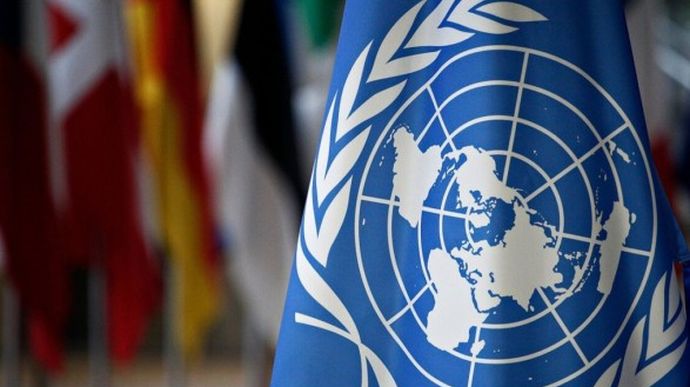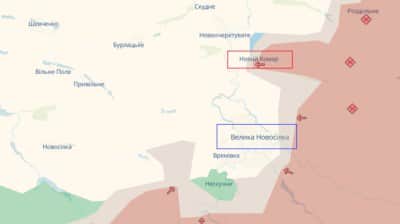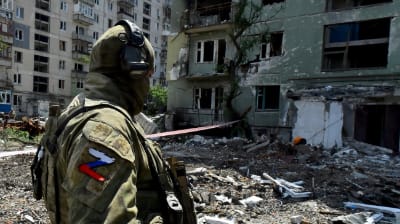UN commission records Russia's crimes in war against Ukraine

The UN Independent International Commission of Inquiry on Ukraine published a report on Thursday on the investigation of war crimes committed by Russia in the war against Ukraine.
Source: Report of the UN Commission
Quote: "During the conduct of hostilities, Russian armed forces have exposed civilians to significant risks. The Commission has found that, on repeated occasions, they deliberately positioned their troops or equipment in residential areas, and have, at times, forced civilians to remain there or in the proximity of their positions."
Деталі: The UN has counted that Russian attacks on energy infrastructure have damaged or destroyed thousands of residential buildings, over 3,000 educational institutions and more than 600 medical facilities.
The UN recognised Russian attacks on Ukraine's energy infrastructure as a war crime. In addition, such massive attacks by the Russian Federation can be considered a crime against humanity. The commission stressed that more time and resources are needed to investigate attacks on the energy infrastructure.
The Commission states that Russian forces used four types of weapons, the use of which in populated areas led to indiscriminate attacks: unguided bombs dropped from aircraft; inaccurate long-range anti-ship missiles; cluster munitions; and multiple-launch rocket systems, which cover a large area with inaccurate rockets.
The Commission confirmed the strike by the Russian military on the maternity ward in Mariupol on 9 March, Drama Theater on 16 March, Kramatorsk train station on 8 April and the shopping centre in Kremenchuk on 27 June last year: "Irrespective of whether there was a military objective, an assessment of the targets should have alerted the Russian armed forces to the presence of large numbers of civilians".
"The failure to take feasible precautions show a pattern of disregard on the part of Russian armed forces for the requirement to minimize civilian harm," the UN emphasises.
The UN recognised the bombardment and siege of Mariupol as a crime against humanity. However, the Commission adds that it has no grounds for such a conclusion because it never accessed the city.
The Commission has found instances where Ukrainian armed forces likely used cluster munitions in Izium city, Kharkiv Oblast, from March to September, when Russian armed forces controlled it.
The report also states that at the beginning of the occupation of settlements, the Russian military committed many wilful killings, rapes, and acts of sexual violence, and unlawful confinement, looking for pro-Ukrainian citizens and weapons.
"Evidence collected shows a widespread pattern of summary executions in areas that Russian armed forces controlled in 17 localities of the Chernihiv, Kharkiv, Kyiv, and Sumy regions, with the highest number in the Kyiv region, including in the town of Bucha.
The Commission has confirmed the execution of 65 men, two women, and a 14-year-old boy. Most of the cases documented in the areas which the Commission visited took place during the first few months of the armed conflict. In over half of the executions investigated, witnesses last saw the victims in the custody of Russian armed forces. In a few cases, eyewitnesses saw Russian armed forces carry out the executions," the report states.
The Commission also recorded attacks by the Russian military on civilians who were trying to evacuate. The victims were dressed in civilian clothes and were not armed.
Journalists fight on their own frontline. Support Ukrainska Pravda or become our patron!





